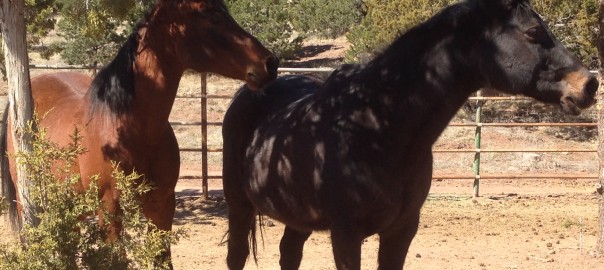Last weekend when my grandson Kaiden came out to see the horses in their new location, he said, “they have their own world now.” The place has no grass but lots of trees and interesting places to explore. It’s very big, I’m not sure what it would be considered in acreage, and has hills and varied terrain.
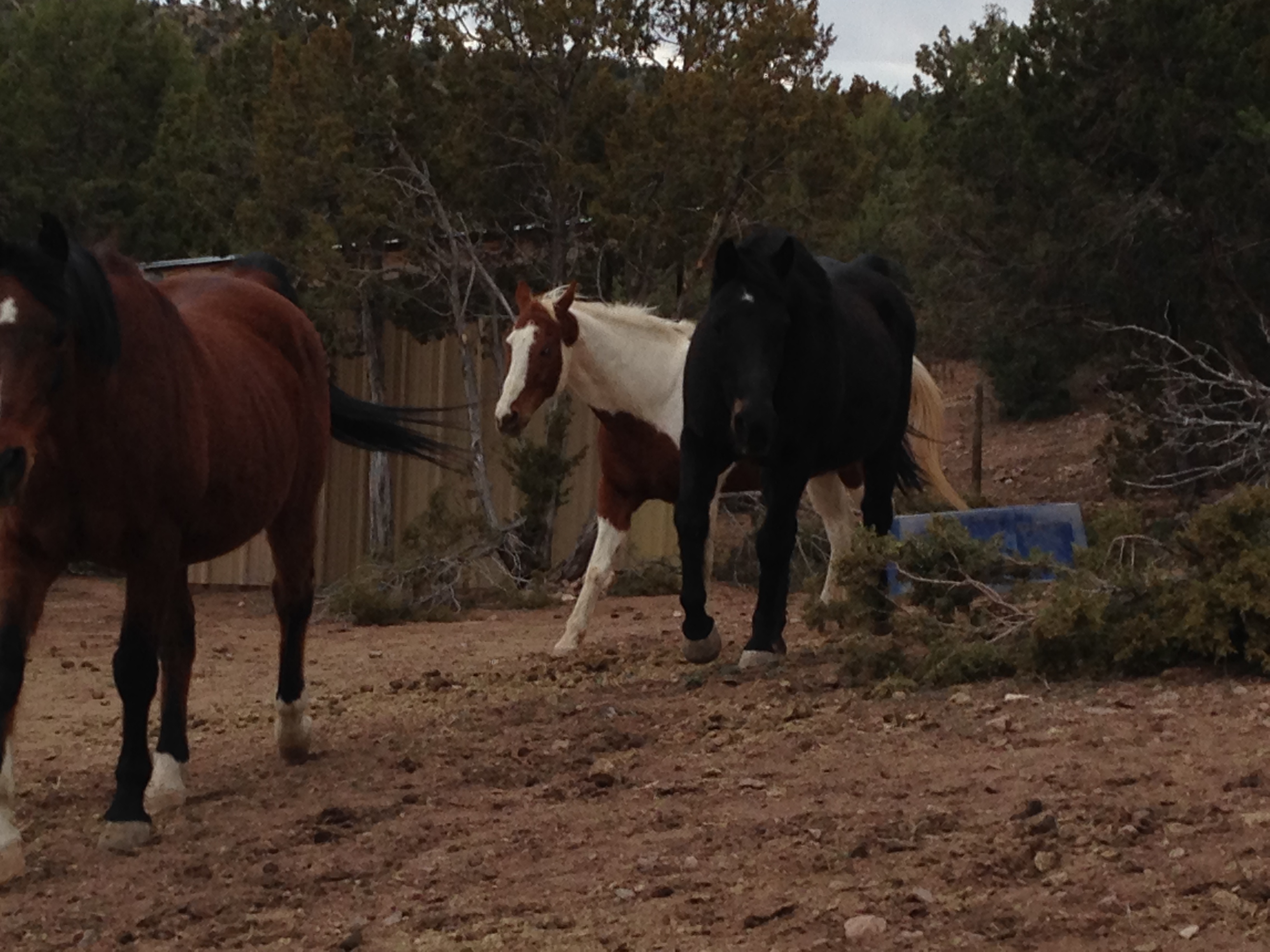 I like how he described it, because that’s how I feel about it. They have their own world, so when I’m not around, they have things to do that interest them.
I like how he described it, because that’s how I feel about it. They have their own world, so when I’m not around, they have things to do that interest them.
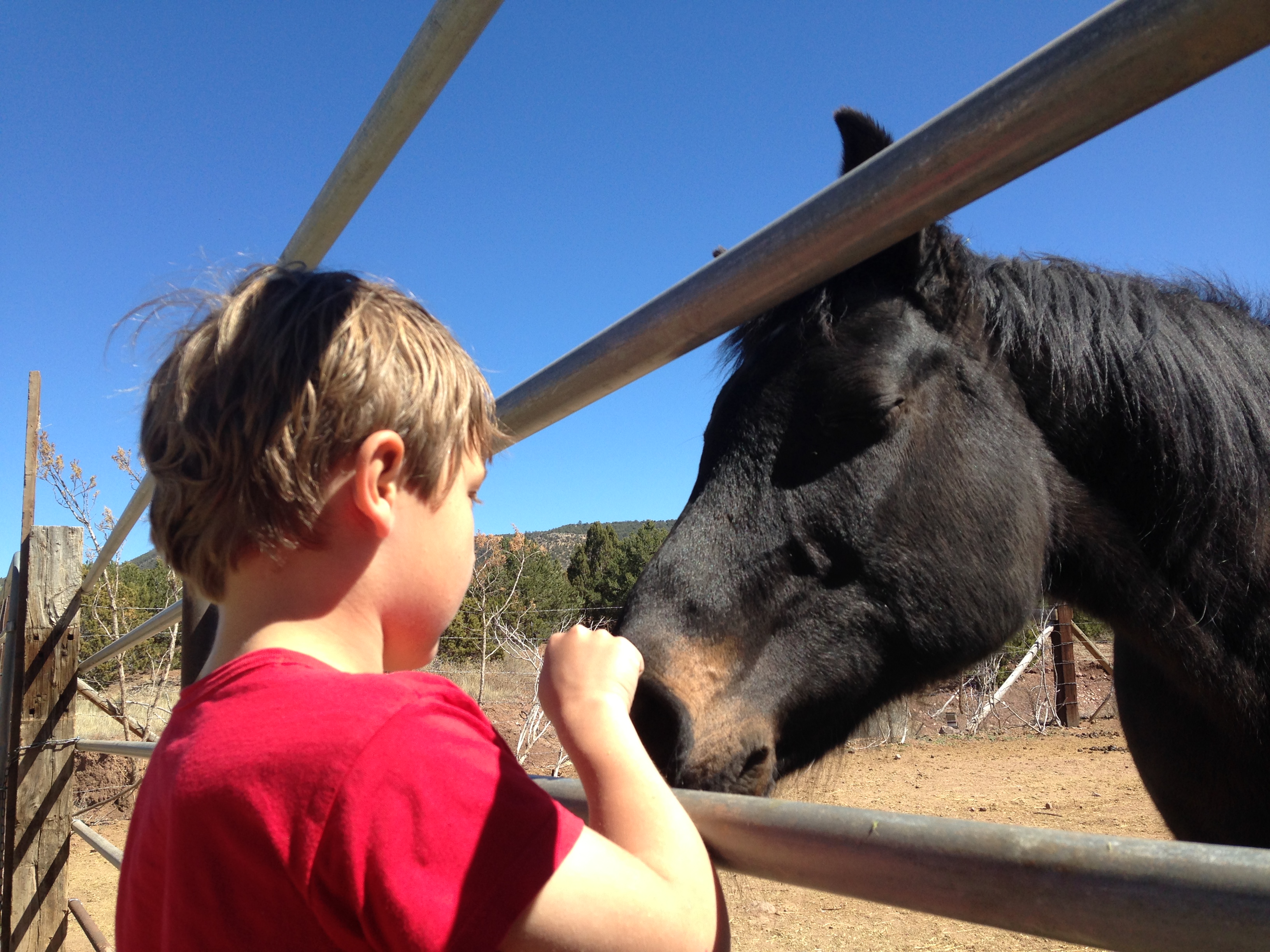 Horses will be fine with what they are accustomed to. They aren’t like people are in terms of thinking we need more of this or that, or would like a view of the mountains. They get accustomed to their surroundings and their stablemates. They form relationships. They like a certain order. They can, however, be happier or less happy with their circumstances, and not know why. They can misbehave when they are in very close quarters and not understand that if they had more space and freedom, they may not feel so agitated.
Horses will be fine with what they are accustomed to. They aren’t like people are in terms of thinking we need more of this or that, or would like a view of the mountains. They get accustomed to their surroundings and their stablemates. They form relationships. They like a certain order. They can, however, be happier or less happy with their circumstances, and not know why. They can misbehave when they are in very close quarters and not understand that if they had more space and freedom, they may not feel so agitated.
When it’s necessary to move, then the horse has to accustom himself to the new environment. My two retired endurance horses, Khami and Zuzka, have been many places. Although they haven’t done much traveling in the past years, they still have been trailered to trails to ride. When we traveled together, we camped together, had our dinner together, were on the trails for hours together. We were so “together” that they may have felt they had never left home!
That process has made them adaptable. Or so I thought.
These two had lived in the same place for 15 years, and they were happy there. I had prepared all the horses by talking about the move and visualizing for them pictures of the new location for months before hand. I knew it registered with Patches because as the time grew near, he began to stand at the gate looking off in the distance, which he had never done before. Both older ones, Khami and Zuzka, wanted me to walk them around the perimeter of their old home, not really to graze, but just to perhaps feel the ground under their hooves one more time. I don’t know exactly, I only know their attitudes changed as the time grew near to move.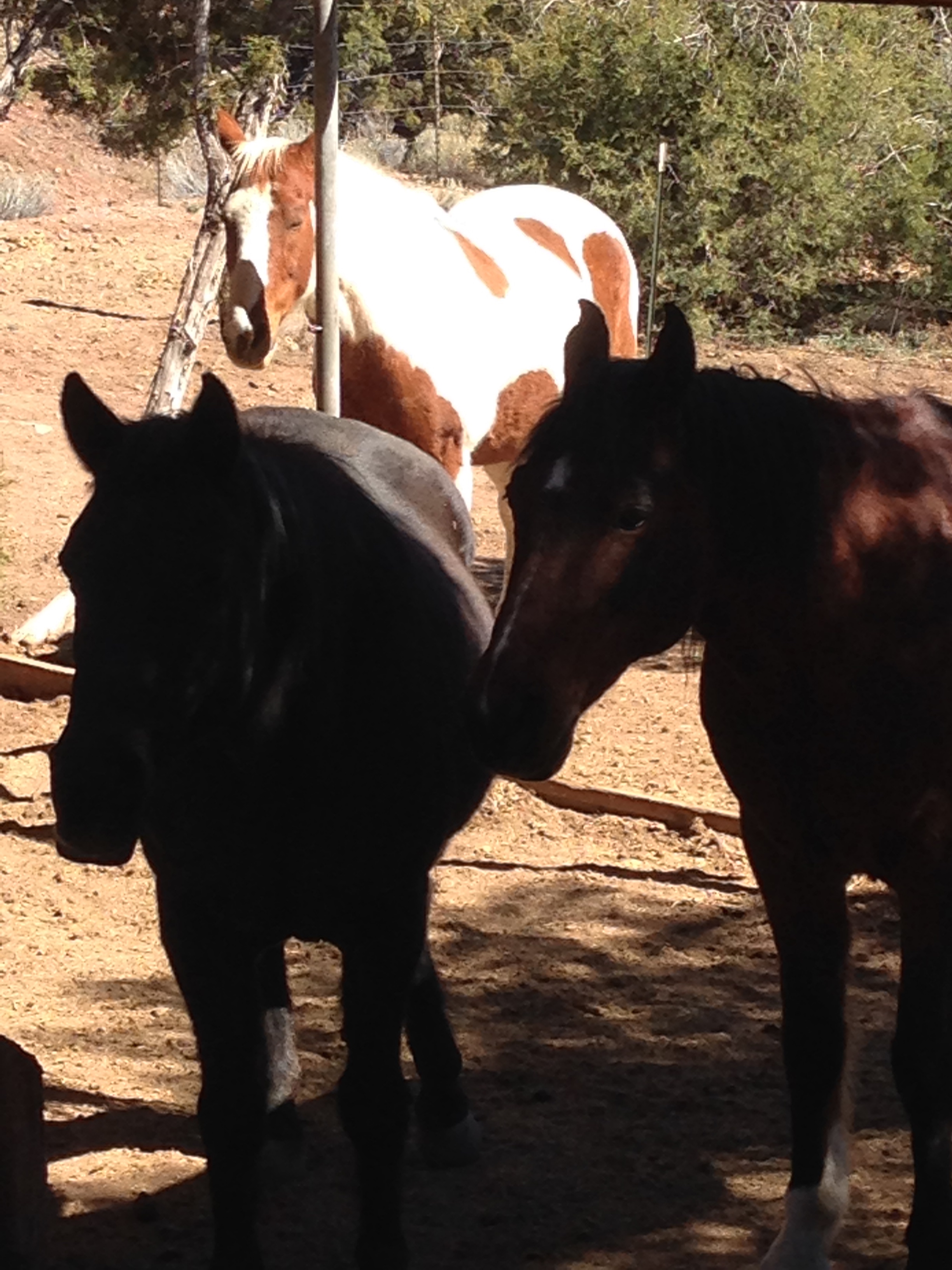
In spite of all that, my coming 23-year-old mare Zuzka didn’t want to move. Perhaps she wasn’t ready; perhaps she didn’t like the trailer since she was bumped around in it recently. I’ll probably never know.
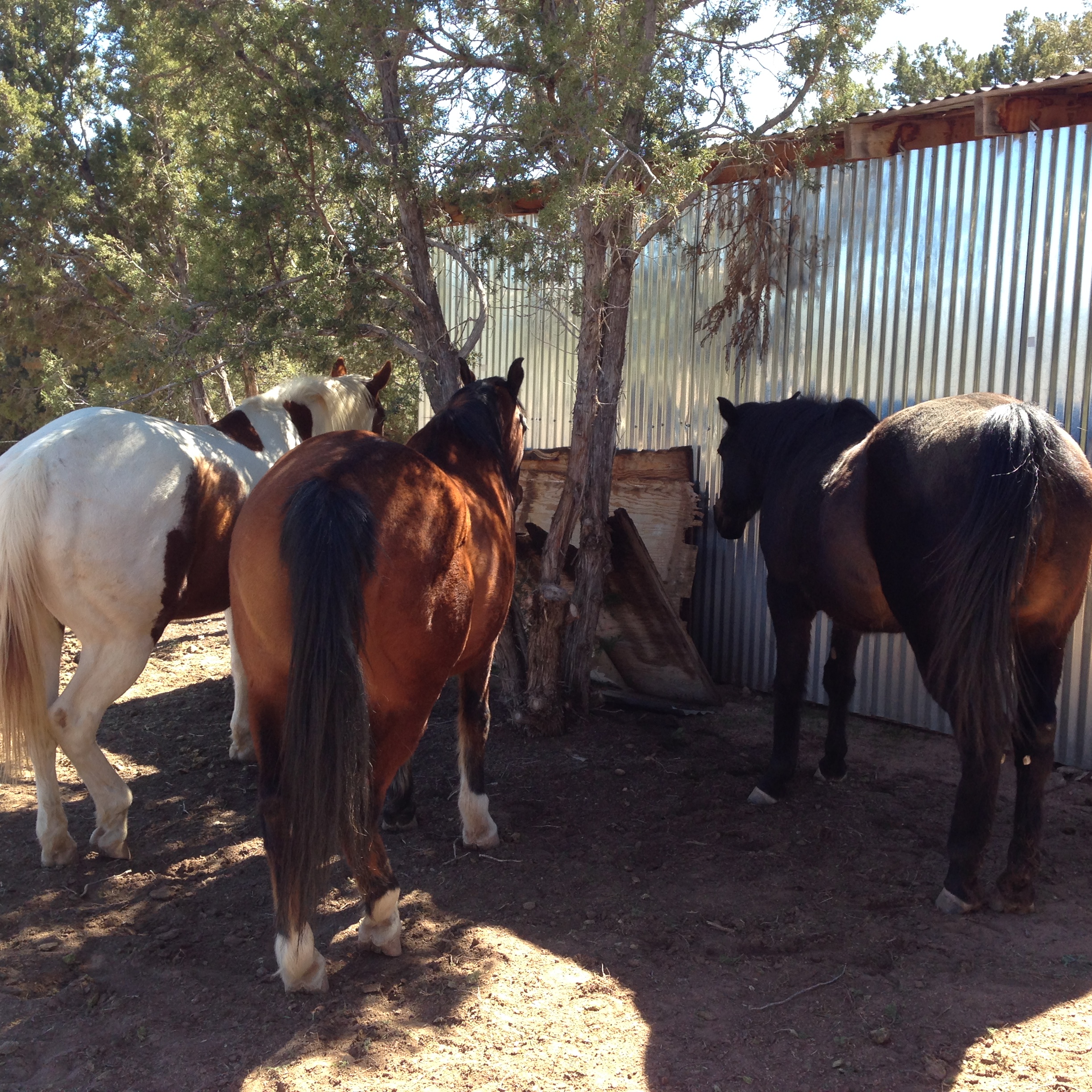 Khami and Patches were fine with it. All of them are now settled in to the new space, and enjoying have more room to wander and new things to explore. In time, I’m sure it won’t be as exciting, but right now they are busy negotiating the environment, and even their relationships are changing in some ways. And Zuzka loves the new area as I knew she would, because she gets to climb up and down hills every day, which is one of her favorite things to do.
Khami and Patches were fine with it. All of them are now settled in to the new space, and enjoying have more room to wander and new things to explore. In time, I’m sure it won’t be as exciting, but right now they are busy negotiating the environment, and even their relationships are changing in some ways. And Zuzka loves the new area as I knew she would, because she gets to climb up and down hills every day, which is one of her favorite things to do.
Two of them are not happy about being taken out to go for walks, and have separation anxiety. Khami wants to go for walks and enjoys seeing the other horses.
I’ve experienced issues with “the move” with other people’s horses who have had difficulty adjusting – the “barn sourness” or “herd boundness” after a big move. I get calls about how they can’t ride the horse out on the trail because she doesn’t want to leave the others. Now I am experiencing this firsthand with the two.
My clients who have had this problem also say that their horses aren’t interested in them – their owners, after the move. I have counseled them through this, saying not to worry, your horse will come back into relationship. The horse is so busy with adjusting, perhaps adjusting to new relationships as well as the new surroundings. That’s all so much more exciting than mom at the moment!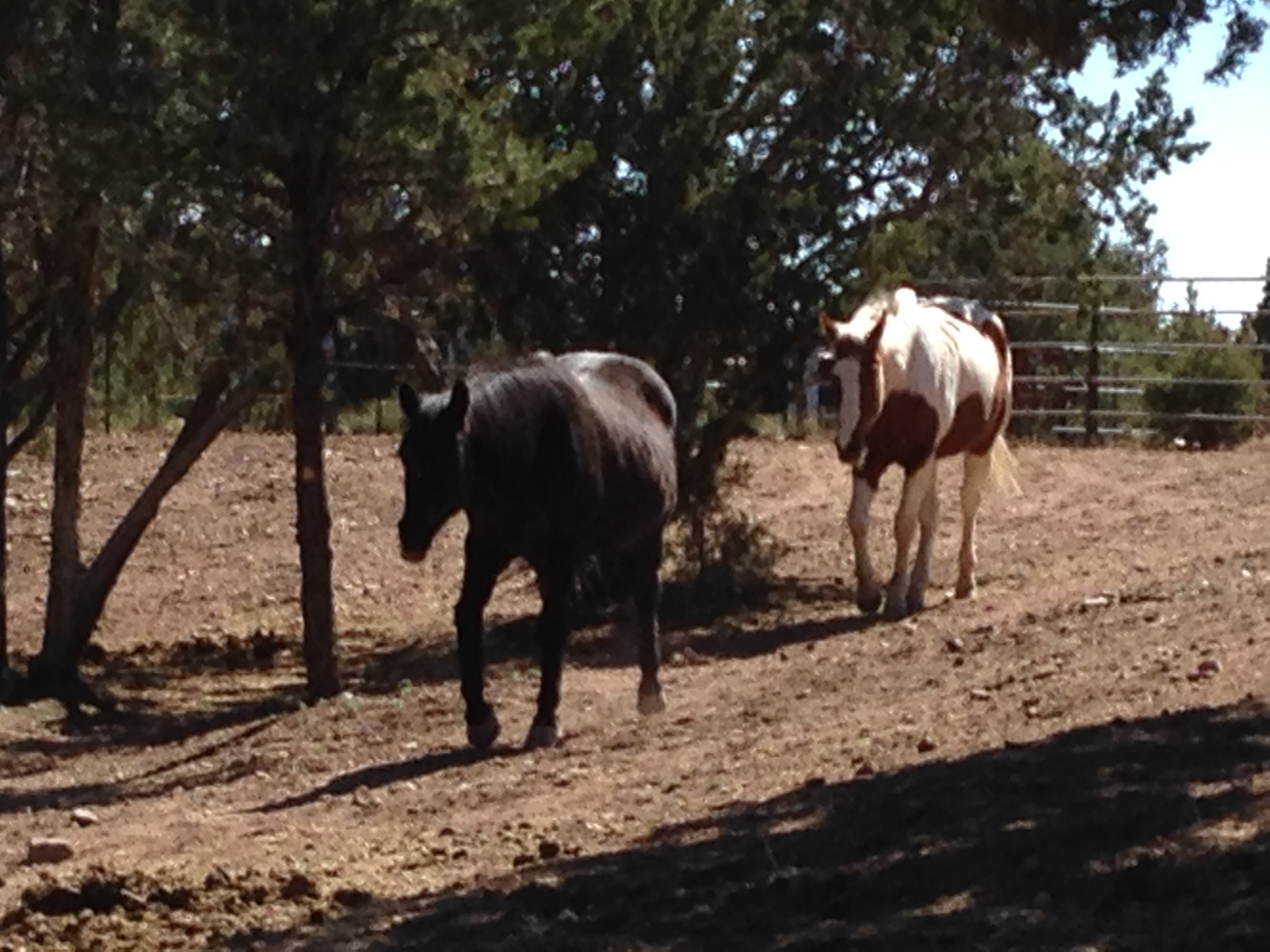
What will I do about this situation? The Liberty Foundations, of course! My dear friend Susie brought an Adirondack chair to put in the pasture, so I can sit with the horses. I will sit with them when the weather is nice, and I’ll just start from the beginning. We will go through every foundation that they need, which they all know well, until they are comforted and are drawn back to me.
Strangely, my oldest horse, coming 26, Khami, has not drawn away, he has drawn closer to me. He’s usually a gruff old guy. So I began taking him out for his walks and will ride him a little. He has taken an interest in some young colts on the place. The hay-scent of him is sweet and dear and he feels softer somehow.
Postscript:
I must report to you that it didn’t take long for our relationship to adjust. Just yesterday, my mare Zuzka, one of those who didn’t want to go for walks, took me on a stroll about the property at liberty, showing me the places she liked the best. She loves a particular place on a hill where the trees are dense and no one can see she’s there. (Does anyone else have a black horse who likes to pretend she is invisible?)
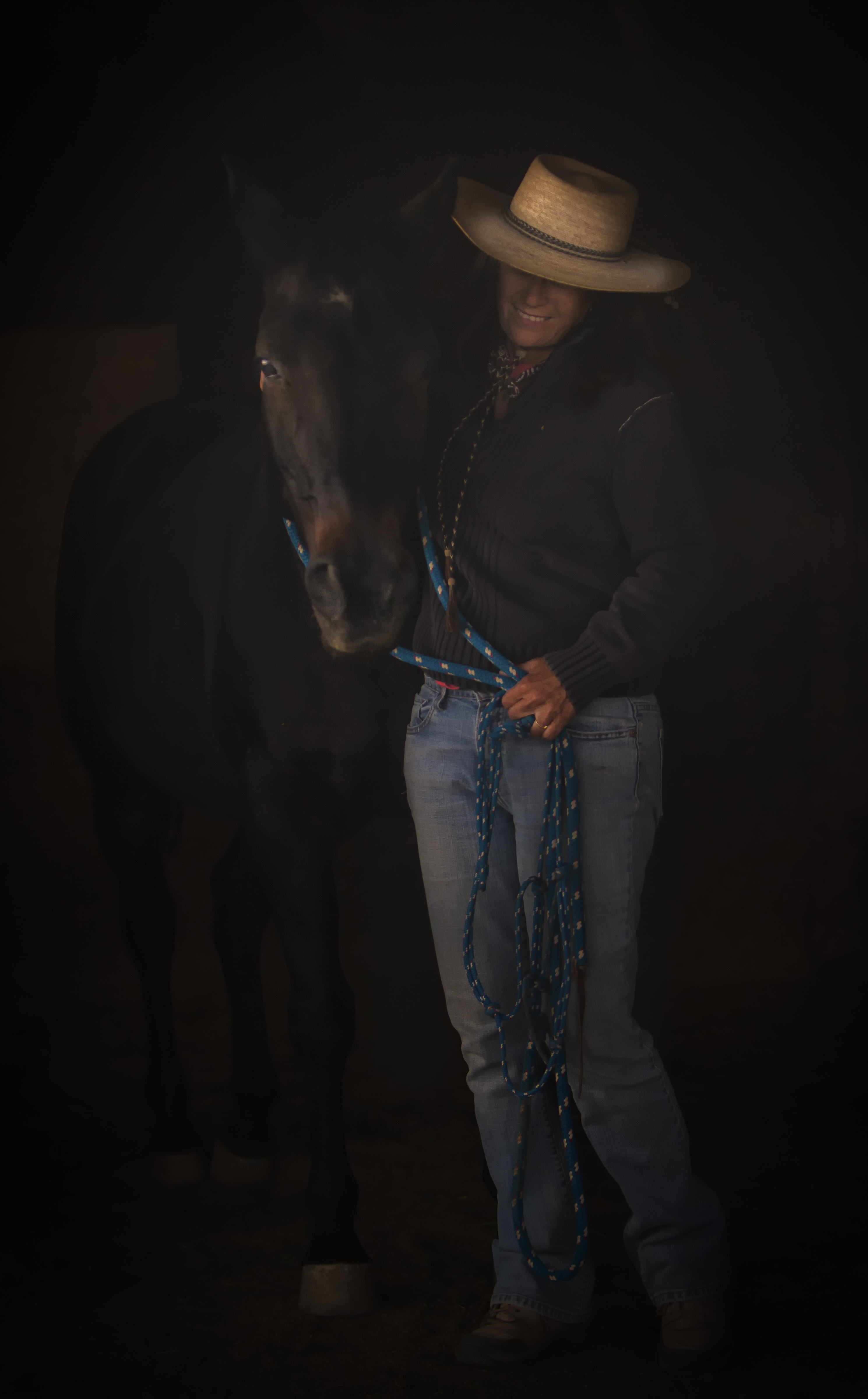
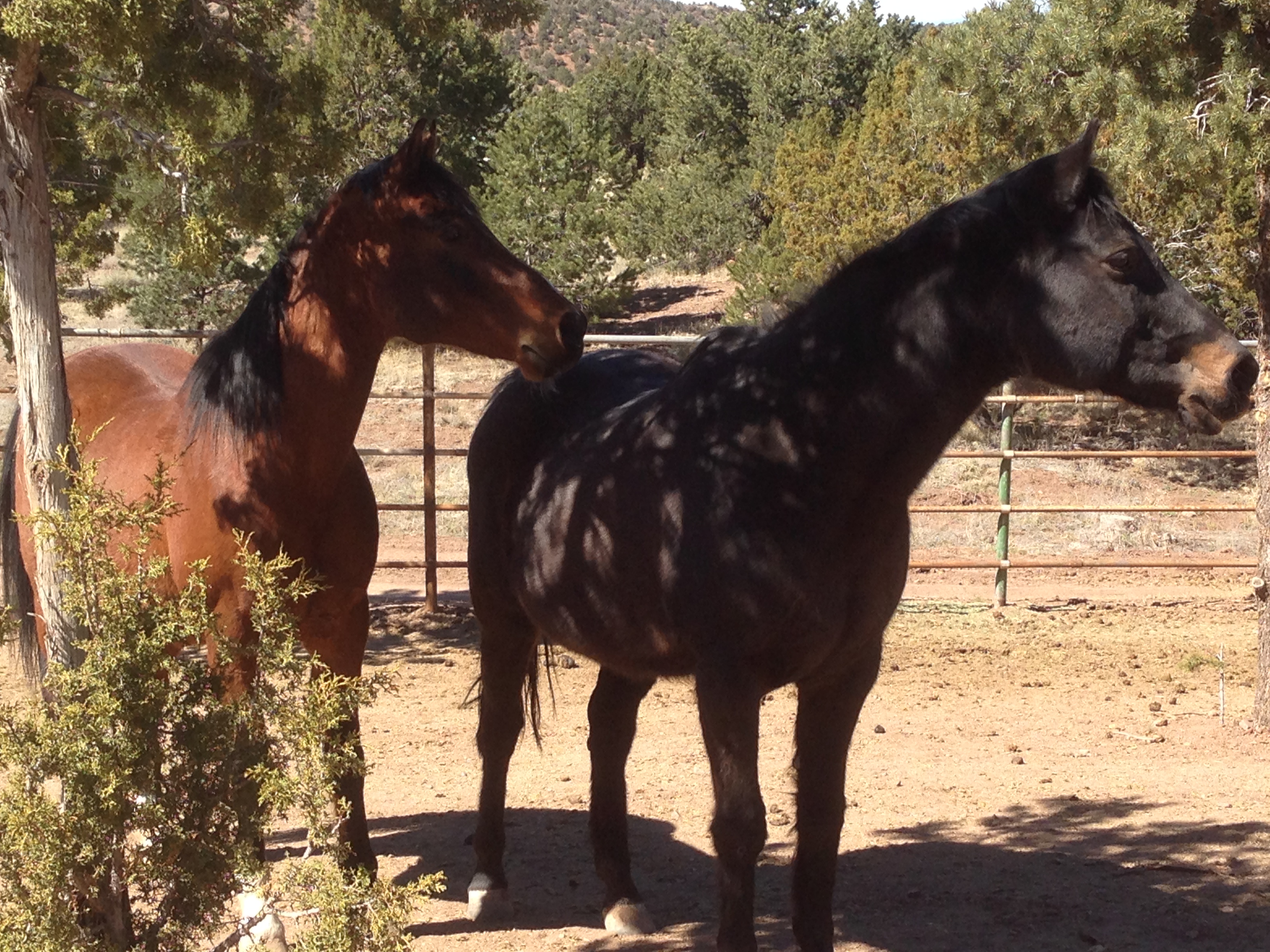 I believe I sat in the beautiful chair once. The next day I could tell Zuzka was interested in doing something with me, and then she suggested the walk.
I believe I sat in the beautiful chair once. The next day I could tell Zuzka was interested in doing something with me, and then she suggested the walk.
The dynamics are changing, and with them, I feel my own nervous system changing too. Seeing through the horses’ eyes what their new world is like and delighting in what they discover.
(copyright: Susan Smith, OrthoHorse)
*****
Keep an eye on the calendar as more events will be added as they are planned.
Services: Bodywork: (Ortho-Bionomy for people, Equine Ortho-Bionomy, Equine Positional Release (EPR)): private sessions, tutorials, phone consultations, Horse & Rider sessions, distance healing communication and gift certificates
Liberty Coaching: clinics, mini-clinics, workshops, private and semi-private sessions, tutorials, consultations: by appointment: 505.501.2478 or emailing susansmith@orthohorse.info Scheduling now. Contact me for details.
I’m now putting together the 2015 Clinic Calendar. Let me know if you want to do a clinic in your area. Prices will vary according to location.
April 10-12 – Spring Liberty Weekend in Oklahoma — Susan Smith and Ruella Yates, co-instructors. Contact either of us: susansmith@orthohorse.info or ruella@libertyfoundations for further details.
 Photo credit: Catherine Sobredo Photography
Photo credit: Catherine Sobredo PhotographyApril 25 – HOLD YOUR HORSES! AN INTRODUCTION TO EQUINE POSITIONAL RELEASE
Time: SATURDAY 9AM – 4PM $130 Early Bird paid before April 10 – $140 after April 10. Payments are non-refundable after April 10.Learn how to do some effective bodywork in this introductory course.Equine Positional Release, (EPR), is a non-force modality devised by founder Zarna Carter, from her training in Ortho-Bionomy and Homeopathy.
EPR works with the body’s ability to self-correct. By giving the body specific choices, it finds available corrections.EPR can effectively address acute and chronic injury patterns, structure, tendons & ligaments, illness, organ imbalance, fluids, lymph, neurological imbalances, lameness, and much more.Susan Smith is a registered advanced Ortho-Bionomy practitioner, Equine Ortho-Bionomy and EPR practitioner & Teacher Trainee with a
practice for both people and equines.To enroll, please contact Susan at 505-501-2478 (cell) or 505-983-2128 (home) Email susansmith@orthohorse.info.
A PayPal option will be put on www.orthohorse.info
Space is limited; please contact Susan for an enrollment form and to arrange payment.
Who will benefit from this work?
All horses and humans, but specifically:
- Horses who have not responded to traditional natural horsesmanship
- Horses who have been frightened, abused and in other ways traumatized
- Horses who may be aggressive or too passive in their herd situations
- Horses who have problems with humans
- All humans who may be puzzled about relationship with horses and want to deepen their connection.
December 7-11 Sahaja 2015 5-Day Clinic on the island of St. Vincent in the Caribbean – Susan Smith & Stina Herberg. See details:
Independent Liberty Trainers Network
Susan & Stina Team Up to Make the Sahaja Clinic an Unforgettable Experience
Susan is a member of the Independent Liberty Trainers Network. libertytrainersnetwork.com/



